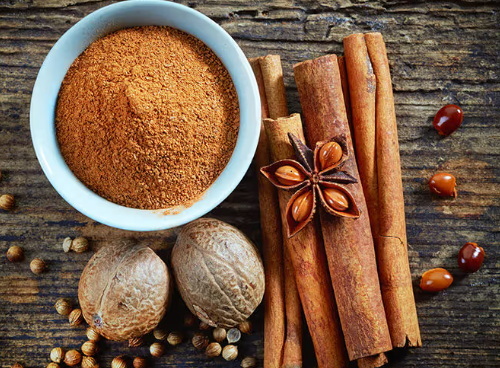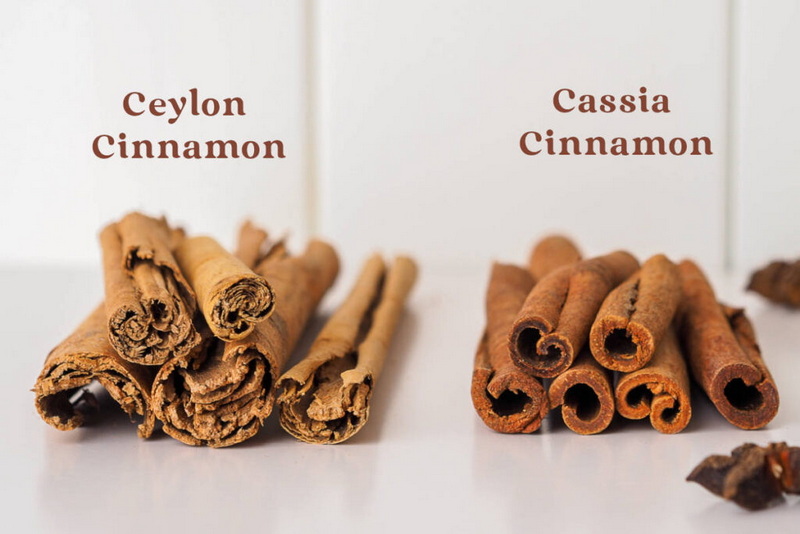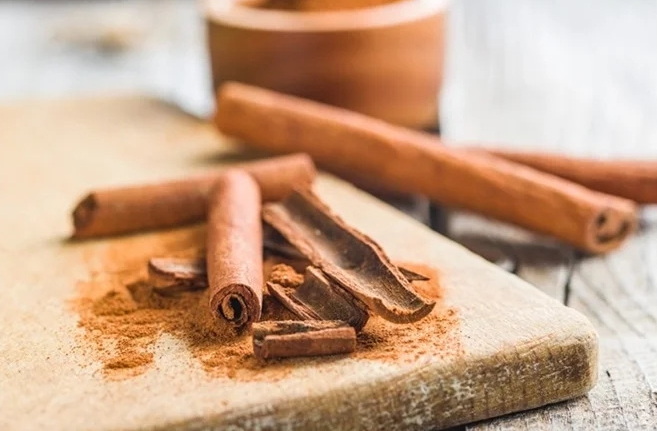Content Menu
● Introduction to Cinnamon
>> Cinnamon Bark
>> Cinnamon Root Extract
● Health Benefits of Cinnamon Bark vs. Root Extract
>> Cinnamon Bark Benefits
>> Cinnamon Root Extract Benefits
● Cinnamon Bark vs. Cinnamon Root Extract: Which Is More Effective?
● Applications of Cinnamon Bark and Root Extracts
>> Cinnamon Bark Extracts in Supplements
>> Cinnamon Root Extracts in Traditional Medicine
● Comparison of Cinnamon Varieties
>> Cassia vs. Ceylon Cinnamon
>> Cinnamon Bark Extract vs. Whole Cinnamon
● Cinnamon Bark Extract: Advantages Over Whole Cinnamon
● Safety Considerations
● Potential Uses in Cosmetics
● Conclusion
● FAQs
>> 1. What are the main differences between Ceylon and cassia cinnamon?
>> 2. What are the health benefits of cinnamon bark?
>> 3. Is cinnamon root extract safe to use?
>> 4. Can cinnamon bark be used for weight loss?
>> 5. How should I choose between cinnamon bark and root extracts?
● Citations:
Cinnamon, a spice derived from the inner bark of the cinnamon tree, has been widely used for its culinary and medicinal properties. It is available in various forms, including cinnamon bark and root extracts, each with distinct characteristics and benefits. In this article, we will delve into the differences between cinnamon bark and root extracts, exploring their effectiveness, uses, and potential health benefits.

Introduction to Cinnamon
Cinnamon is obtained from the genus h3Cinnamomumh3, with two main varieties: Ceylon cinnamon and cassia cinnamon. Ceylon cinnamon, also known as "true cinnamon," is lighter in color, has a sweeter aroma, and is considered the premium variety due to its low coumarin content. Cassia cinnamon is darker, more robust in flavor, and contains higher levels of coumarin, which can be harmful in large doses.
Cinnamon Bark
Cinnamon bark is the most commonly used part of the cinnamon tree for culinary and medicinal purposes. It is rich in cinnamaldehyde, a compound responsible for its distinctive flavor and aroma. Cinnamon bark extracts are often preferred due to their higher concentration of beneficial compounds compared to other parts of the plant.
Cinnamon Bark Composition:
- Cinnamaldehyde: 65-80%
- Eugenol: 5-10%
- Procyanidins and Catechins: Antioxidant properties
Cinnamon Root Extract
Cinnamon root extract, though less commonly used, contains different bioactive compounds. It is rich in camphor, which gives it distinct properties compared to bark extracts. However, the root extract is not as well-studied as the bark extract in terms of health benefits.
Cinnamon Root Composition:
- Camphor: 60%
- Other volatile compounds
Health Benefits of Cinnamon Bark vs. Root Extract
Cinnamon Bark Benefits
1. Antioxidant Properties: Cinnamon bark is renowned for its high antioxidant activity, which helps protect against oxidative stress and inflammation.
2. Blood Sugar Regulation: Studies suggest that cinnamon bark can help manage blood sugar levels, making it beneficial for individuals with diabetes.
3. Heart Health: It may also contribute to reducing the risk of heart disease by improving lipid profiles and lowering blood pressure.
Cinnamon Root Extract Benefits
While cinnamon root extract is less studied, it may offer unique benefits due to its different composition. However, there is limited research on its specific health benefits compared to cinnamon bark.
Cinnamon Bark vs. Cinnamon Root Extract: Which Is More Effective?
When comparing cinnamon bark and root extracts, cinnamon bark is generally considered more effective due to its higher concentration of beneficial compounds like cinnamaldehyde and its well-documented health benefits. Cinnamon root extract, though potentially beneficial, lacks extensive research and is not as widely used in traditional medicine.

Applications of Cinnamon Bark and Root Extracts
Cinnamon Bark Extracts in Supplements
Cinnamon bark extracts are commonly used in dietary supplements due to their high potency and standardized active compounds. They are particularly favored for blood sugar support and metabolic health formulations. The extract is made by extracting active compounds from cinnamon bark using solvents like ethanol or water, followed by concentration and standardization[1].
Cinnamon Root Extracts in Traditional Medicine
Cinnamon root extracts have been used in traditional medicine for various purposes, though their applications are less documented compared to cinnamon bark. They may offer unique benefits due to their distinct chemical composition.
Comparison of Cinnamon Varieties
Cassia vs. Ceylon Cinnamon
- Cassia Cinnamon: Strong, pungent flavor; high in coumarin; commonly used in commercial products.
- Ceylon Cinnamon: Mild, sweet flavor; low in coumarin; preferred for health-focused products.
Cinnamon Bark Extract vs. Whole Cinnamon
- Cinnamon Bark Extract: Concentrated form with standardized active compounds; ideal for supplements.
- Whole Cinnamon: Less concentrated but offers a broader range of compounds; often used in cooking and traditional medicine.
Cinnamon Bark Extract: Advantages Over Whole Cinnamon
Cinnamon bark extract is more concentrated and standardized, ensuring consistent potency in supplements and functional foods. The bioavailability of active compounds in cinnamon bark extract is generally higher due to its concentrated form, which can enhance absorption and efficacy[1]. Additionally, cinnamon bark extract can be adapted to various taste profiles, making it versatile for different formulations[2].
Safety Considerations
Both Cassia and Ceylon cinnamon barks contain coumarin, but Ceylon has significantly lower levels. Cinnamon bark extract can be sourced from either type, depending on the desired coumarin content. High doses of Cassia-based extracts should be avoided due to potential liver toxicity[1].
Potential Uses in Cosmetics
Cinnamon bark extract is also explored for its antioxidant properties and potential skin benefits in cosmetics, as outlined in various patent applications[1].
Conclusion
In conclusion, while both cinnamon bark and root extracts have potential benefits, cinnamon bark is more effective and widely used due to its rich composition of beneficial compounds and documented health benefits. For those considering cinnamon supplements, bark extracts are generally recommended over root extracts.

FAQs
1. What are the main differences between Ceylon and cassia cinnamon?
- Ceylon cinnamon is lighter in color, sweeter, and has lower coumarin content, making it safer for regular consumption.
- Cassia cinnamon is darker, more robust, and contains higher levels of coumarin, which should be consumed in moderation.
2. What are the health benefits of cinnamon bark?
Cinnamon bark is rich in antioxidants, may help regulate blood sugar levels, and supports heart health by reducing the risk of heart disease.
3. Is cinnamon root extract safe to use?
While cinnamon root extract is generally considered safe, there is limited research on its safety and efficacy compared to cinnamon bark extracts.
4. Can cinnamon bark be used for weight loss?
There is no conclusive evidence that cinnamon bark aids in weight loss. More research is needed to determine its effectiveness for this purpose.
5. How should I choose between cinnamon bark and root extracts?
For most health benefits, cinnamon bark extracts are recommended due to their higher concentration of beneficial compounds and well-documented health effects.
Citations:
[1] https://www.botaniex.com/is-cinnamon-bark-extract-more-effective-than-regular-cinnamon-bark.html
[2] https://greenjeeva.ca/cinnamon-bark-extract-vs-cassia-vs-ceylon/
[3] https://pmc.ncbi.nlm.nih.gov/articles/PMC8433798/
[4] https://pmc.ncbi.nlm.nih.gov/articles/PMC4003790/
[5] https://www.mdpi.com/1999-4907/12/5/648
[6] https://www.consumerlab.com/answers/is-there-a-difference-between-root-powder-and-root-extract/powder-vs-extract/
[7] https://typeset.io/pdf/a-comparison-of-essential-oil-constituents-of-bark-leaf-root-2t78xnjil1.pdf






























